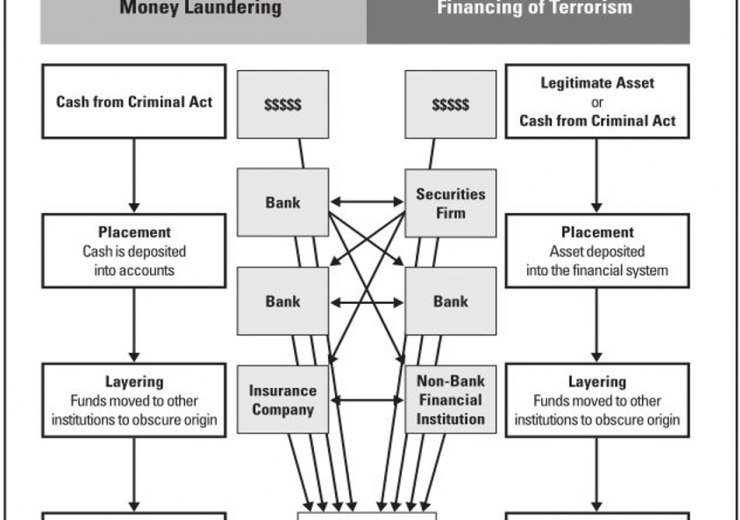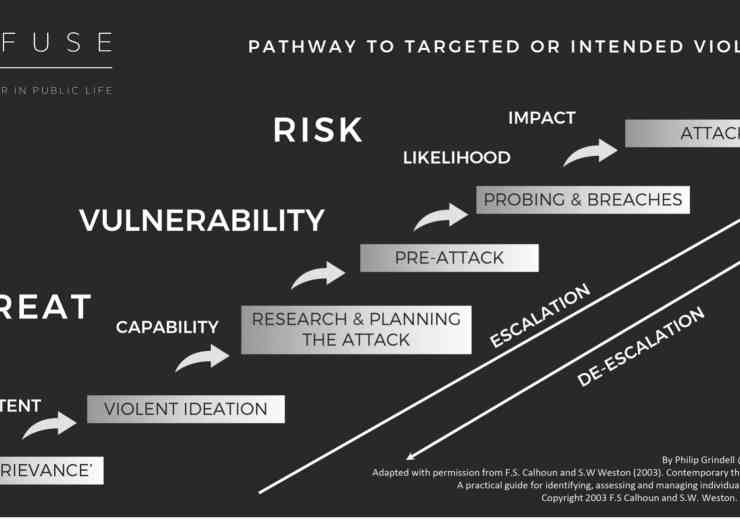
Pool Re SOLUTIONS Annual Review 2021 - Special Edition
Post Pandemic and biological weapons?
The Covid-19 pandemic impacted (and continues to do so) on all societies and economies, exacerbating many of the divisions which are exploited by extremist groups. Many commentators and CT professionals predicted a post pandemic surge of terrorist attacks as the country came out of lockdown. This is yet to manifest itself at scale, as witnessed in 2017, but the murder of Sir David Amess and the failed attack on the women’s hospital in Liverpool, both within a month of each other, may herald the start of a series of further incidents.
The consequences of the pandemic on terrorism are still unfolding, but early signs indicate increased levels of radicalisation. Of significant concern is the impact on CT (and related) budgets. The pandemic has left a serious economic scar on the global economy. Will we face further cuts, and budget reviews? How will this affect the international CT infrastructure and our preparedness to prevent or minimise the effects of an attack? We have already witnessed many countries scaling back on their international commitments (for example the withdrawal of troops from Afghanistan) which is already reducing the pressure on a wide range of terrorist groups.
The pandemic has also demonstrated the potency and scope a biological attack could pose. We now need to consider to what extent terrorists are likely to invest time and effort in exploring this as a serious means of destruction. It is generally believed that a sophisticated weaponised virus would be difficult to produce and deploy successfully, not least because when released it becomes so difficult to control and is indiscriminate in its effect. Covid-19 will most likely have resurrected terrorist interest in developing biological and chemical weapons. Five years of experimentation of novel weapons, in particular chemical IEDs, in Iraq and Syria during the time of the so-called Caliphate, will have contributed to their knowledge of using them. They will be well versed in the psychological impact of ‘terror’ weapons. Whether they have the appetite and means to deploy a biological weapon is not something to be ignored, especially when the 2021 UK Integrated Review warned of a successful chemical, biological or radiological device being used by a terrorist group before 2030.
The forever consequences of the withdrawal from Afghanistan
Much has already been written about the calamitous withdrawal of US and other forces from Afghanistan - what Presidents Trump and Biden called the ‘forever war.’ Afghanistan continues to spiral into a humanitarian, economic, security and political crisis, exacerbated by splits between the Taliban movement, which is likely to lead to a civil war and further chaos which will be exploited by state, non-state, and terrorist groups. The withdrawal of US and coalition troops cannot be discussed as either the right or wrong decision, rather an unnecessary and poorly timed one, with massive and forever consequences. The mass exodus of Afghans from their homeland will add to further pressures of a migrant population in Europe and the UK which, will in turn, increase tensions within some elements of society. This is likely to be exploited by both Islamists and the Far Right. What is certain is that the Taliban victory in Afghanistan has provided a major morale boost for Jihadist groups around the world, which will no doubt be of benefit to AQ and its affiliates. The West will be less safe, with increased probability of another 9/11 style attack being planned and prepared from Afghanistan.
A counter narrative to the negative consequences of the withdrawal from Afghanistan is the potential for this decision to lead to an inflexion point in the ‘war on terror’. Whilst random and seemingly isolated incidents and self-initiated terrorists will continue to be a problem, the fundamental rationale for the Islamist extremists’ call to arms, namely our presence in Iraq and Afghanistan, has now disappeared. No longer can the West be blamed for interfering in Muslims’ lives as both countries are now being run by Islamic governments albeit with very different political and religious hues. The call to arms expressed so successfully by AQ and then by Daesh was predicated on Western interference in Iraq and Afghanistan will be much more difficult to substantiate and justify. What we may see instead is a struggle for power and control between various Islamic groups in Iraq, Afghanistan, Syria, and the Sahel, with less focus on fermenting extremism and launching attacks in the West.
Sadly, the attraction of the so-called Caliphate spreading to western Europe will likely continue. The narrative will resonate amongst some of the many disenfranchised and disillusioned young men and women in the disaffected and economically depressed areas of the UK, France, the Low Countries and across much of the sub-Sahara and Sahel.
Time will tell.
















